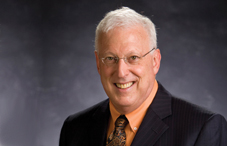If I knew then what I know now… If I could do it again… If I could go back in time…
We’ve all had these thoughts: What we’d do differently if given the opportunity. Would we have spent our time the same way? Would we have entered/ended that relationship? Would we have studied psychology? Would we have gone to graduate school?
If you could send a letter to your 16-year-old self, what would you say? What advice would you give yourself to prepare for the future? To my fellow nerds out there: Yes, we’re talking about parallel universes and warping the space-time continuum.
Dear me, future psychologist is a new feature exclusively on our blog. We will periodically publish a letter written by a prominent psychologist to his/her 16-year-old self. We hope you enjoy these letters and glean some invaluable wisdom and guidance as you decide whether to enter graduate school in psychology, as you navigate the challenges of graduate school, and as you make decisions about your career and life.
 Our first letter is from Robert J. Sternberg, PhD. Dr. Sternberg received his PhD from Stanford University in 1975 and spent most of his career as a Professor at Yale University. More recently, he served as a Dean at Tufts University, Provost at Oklahoma State University, and President at the University of Wyoming. He also is a Past President of the American Psychological Association. He is currently Professor of Human Development at Cornell University. He is best known for his research on intelligence, creativity, wisdom, thinking styles, leadership, ethics, love, and hate. He is the founder of the triarchic theory of intelligence and the triangular theory of love, as well as co-creator of the investment theory of creativity. For more info, please visit Dr. Sternberg’s Wikipedia page.
Our first letter is from Robert J. Sternberg, PhD. Dr. Sternberg received his PhD from Stanford University in 1975 and spent most of his career as a Professor at Yale University. More recently, he served as a Dean at Tufts University, Provost at Oklahoma State University, and President at the University of Wyoming. He also is a Past President of the American Psychological Association. He is currently Professor of Human Development at Cornell University. He is best known for his research on intelligence, creativity, wisdom, thinking styles, leadership, ethics, love, and hate. He is the founder of the triarchic theory of intelligence and the triangular theory of love, as well as co-creator of the investment theory of creativity. For more info, please visit Dr. Sternberg’s Wikipedia page.

FROM THE DESK OF ROBERT STERNBERG:
Dear Me at 16,
I am not sure whether you will receive this letter, at least in a timely fashion, but I thought I would give it a try anyway. Here are three pieces of advice I hope you will find useful, ideally, sooner rather than later.
1. You will underestimate the importance of family and friends. You soon will come to believe that, through your work, you can achieve immortality, and that the shot at immortality is the meaning of your life. Wrong. First, very few psychologists achieve immortality through their work—perhaps Freud, James, Skinner, Piaget, and a few more. But most psychologists are forgotten quickly starting with the day they announce their plans to retire. You will watch many of your famous Yale colleagues retire and see that what is left to them is not their work, which is quickly forgotten, or even their friends from work, most of whom are busy advancing their careers. Rather, what remains is their family and true friends, if they have any. You will discover that your meaning in life is making the world a better place, and that the main way you will do that is through your family, especially your five beautiful children and their children and onward through the generations.
2. You will overestimate people’s willingness to change. You will enter a field, intelligence research, in which many people believe that traits are relatively fixed. You will argue, correctly, that people are far more modifiable than many intelligence theorists give them credit for. But what you will not realize until much later is that the main problem is not people’s inability to change, but rather, their unwillingness to do so. People, including you, will make all kinds of excuses to stay just as they are. They cling to their weaknesses, often inventing stories to justify doing so, and for them, their stories are their reality. Institutions are the same way: Mediocre ones desperately cling to their mediocrity, often inventing stories about their unappreciated excellence, and excellent ones cling to what they have done before in the hope that what once made them great will continue to do so, despite the rapid pace of change in the world. Creativity often is appreciated in word, but not in deed. The problem for psychologists is not so much increasing people’s ability to change as increasing their willingness and courage to do so.
3. Intelligence is not the invaluable commodity you think it is. You, like most of our society, believe in the great importance of intelligence, although at least you realize it is much broader than just IQ. But what most is lacking in the world is not intelligence, but rather, creativity, common sense, wisdom, and high ethical standards. So please, do your work on intelligence, but remember that what the world needs most are motivated, creative, wise, and ethical people, not just smart ones.
Hoping you get this letter soon,
Me at 64
Editor’s Note: Dear Me, Future Psychologist is inspired by the Dear Me book series by Joseph Galliano. Special thanks to David A. Meyerson, Ph.D. for curating these.


What an absolute pleasure to see this blog here, and a really lovely wise letter from Doctor Sternberg. Thank you Dave!
Joe Galliano
I wasn’t expecting this …
Thank you so much prof.Sternberg, thank you!
Fitore